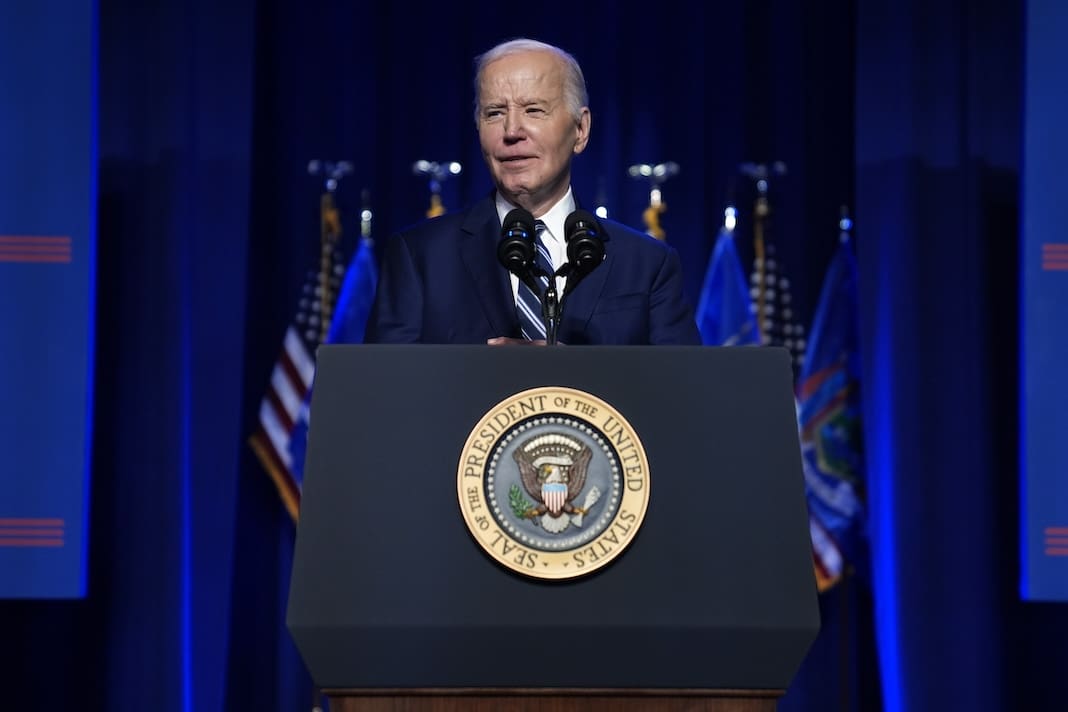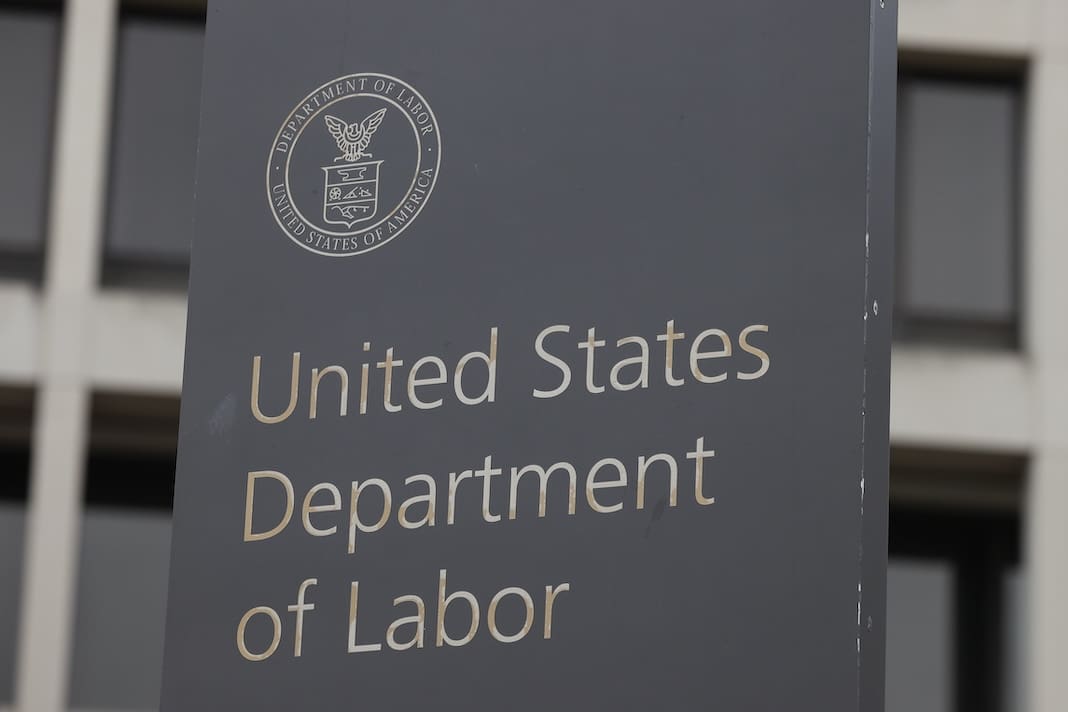Biden pushes back against Trump’s latest attacks on immigrants
President Joe Biden’s reelection campaign said former President Donald Trump was echoing Adolf Hitler.

President Joe Biden reasserted his administration’s support for immigrants in the United States after former President Donald Trump said they were “poisoning the blood of our country.”
In remarks to the Wisconsin Black Chamber of Commerce in Milwaukee on Dec. 20 and released by the White House, Biden said: “I don’t believe, as the President — former President said again yesterday, that immigrants are polluting — polluting our blood. The economy and our nation are stronger when we’re tapped into the full — full range of talents in this nation. My administration is going to continue to fight for these — fight these attacks because everyone deserves a fair shot.”
A recent study by the nonpartisan American Immigration Council has documented the positive financial impact of immigration on the United States.
According to the 2021 report, there are more than 45.2 million immigrant residents living in the nation, and collectively they pay over $524 billion in taxes per year.
“In the United States, immigrants are more likely to be working-age than their U.S.-born counterparts. This means they are more likely to be active in the labor force, allowing them to contribute to the economy not only as consumers but also as taxpayers, helping fund social services and programs like Medicare and Social Security,” the report notes.
The study found that 22.2% of entrepreneurs are immigrants, and that immigrants open new businesses at a higher rate than the overall population. The report determined that there are over 3.4 million immigrant entrepreneurs in America.
The report provides details on immigrants’ contributions in individual states.
In Wisconsin more than 303,000 immigrant residents paid $3.1 billion in taxes in 2021. They make up 7.8% of the state’s workforce in the fields of science, technology, engineering, and mathematics and 19.8% of agricultural workers.
The council notes that Michigan has a large immigrant community, with 3.6% of the state’s U.S.-born residents living with at least one immigrant parent. Taxes paid by immigrants in Michigan amounted to $7.5 billion in 2021, and more than 40,000 immigrant entrepreneurs reside there.
Pennsylvania’s workforce includes more than 600,000 immigrants.
Immigrants nationwide were more likely to have a graduate degree (20.6%) than the U.S.-born population (13.3%) but less likely to have a high school degree, the study notes. “As such, they are able to fill critical shortages at both ends of the skill spectrum, from high-tech positions to agriculture, hospitality, and service jobs.”
Trump made his latest comments about immigrants at a Dec. 16 campaign rally in New Hampshire.
“When they let, I think the real number is 15, 16 million people into our country, when they do that, we got a lot of work to do. They’re poisoning the blood of our country,” Trump said.
Biden reelection campaign spokesperson Ammar Moussa said in a press release issued later that same day, “Donald Trump channeled his role models as he parroted Adolf Hitler, praised Kim Jong Un, and quoted Vladimir Putin while running for president on a promise to rule as a dictator and threaten American democracy.”
Many observers have noted the similarity of Trump’s phrasing to that used by Hitler in his 1925 manifesto “Mein Kampf,” regarding Jews and other minorities. The Washington Post was among those that pointed out Hitler’s writing about Jews: “All the great civilizations of the past became decadent because the originally creative race died out, as a result of contamination of the blood. … And so this poison was allowed to enter the national bloodstream and infect public life without the Government taking any effectual measures to master the course of the disease.”
Using another term echoing Hitler’s phrasing, Trump referred to his political opponents as “vermin” in a speech on Nov. 12.“It doesn’t echo ‘Mein Kampf,’ this is textbook ‘Mein Kampf,’” said Jason Stanley, a Yale professor and the author of “How Fascism Works: The Politics of Us and Them,” in a Nov. 12 MSNBC discussion of Trump’s language.




